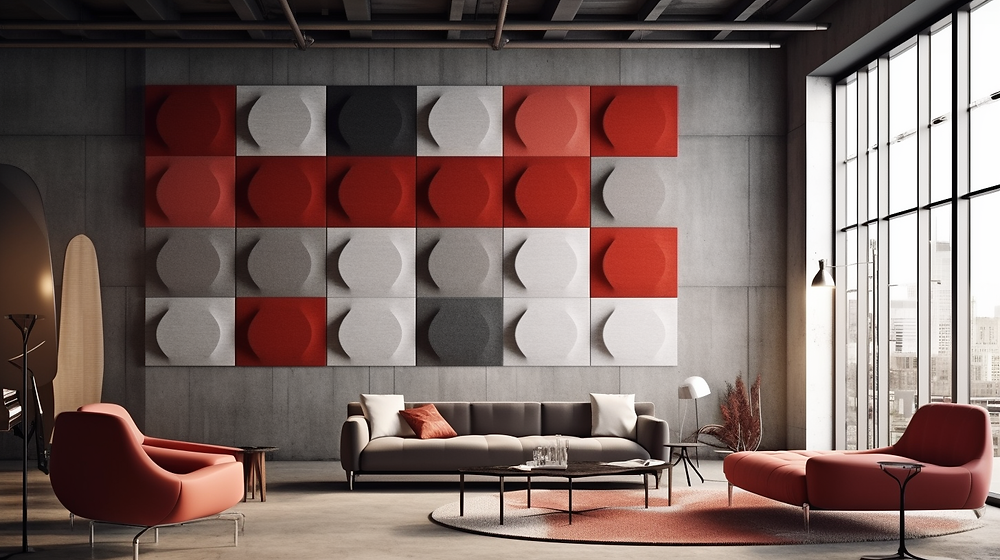The Importance Of HVAC Acoustic Screen Walls In Noise Control
In the modern world, where urban spaces are becoming increasingly crowded, and noise pollution is a growing concern, the importance of noise control measures cannot be overstated. One such measure that plays a crucial role in mitigating noise pollution is HVAC (Heating, Ventilation, and Air Conditioning) acoustic screen walls. These structures are more than just barriers; they are essential to maintaining a peaceful and healthy living environment in our bustling cities.
Understanding The Noise Challenge
Before delving into the importance of HVAC acoustic screen walls, it’s essential to grasp the magnitude of the noise challenge faced by urban areas. Noise pollution, often associated with traffic, industrial activities, and mechanical equipment, can have significant adverse effects on human health and well-being. Chronic exposure to excessive noise levels can lead to stress, sleep disturbances, hearing impairment, and even cardiovascular problems.
HVAC systems are omnipresent in urban landscapes, providing climate control for buildings, commercial spaces, and industrial facilities. However, they are often major contributors to noise pollution due to the powerful fans, compressors, and motors used in their operation. Without effective noise control measures, the noise generated by HVAC systems can disrupt the tranquillity of neighbourhoods and compromise the quality of life for those living or working nearby.
The Role Of HVAC Acoustic Screen Walls
HVAC acoustic screen walls are specifically designed to address this challenge. They are engineered structures that serve as sound barriers, effectively containing and reducing the noise of HVAC equipment. These walls are strategically placed around HVAC units, creating an acoustic enclosure that minimizes noise transmission to the surrounding environment.
- Noise Reduction: The primary function of HVAC acoustic screen walls is to reduce noise levels. They absorb, reflect, and block sound waves generated by HVAC equipment, preventing them from propagating into neighboring areas. This noise reduction is vital for maintaining a peaceful and habitable environment.
- Protecting Health And Well-Being: Noise pollution has been linked to various health issues, including sleep disturbances, increased stress levels, and cardiovascular problems. Communities can protect the health and well-being of their residents and workers by putting up HVAC sound screen walls. This makes the workplace better and more productive.
- Compliance With Regulations: In order to protect communities from the effects of noise pollution, many countries and areas have strict rules about noise. Building owners and managers can meet these rules with the help of HVAC sound screen walls, which helps them avoid fines and legal problems.
- Enhancing Property Values: Properties in quieter environments are often more desirable and command higher market values. By reducing noise pollution through acoustic screen walls, property owners can enhance the attractiveness and value of their real estate investments.
- Maintaining Peaceful Environments: Noise pollution not only affects the physical health of individuals but also disrupts the peace and tranquillity of neighborhoods and urban areas. HVAC acoustic screen walls play a crucial role in preserving the serenity of these spaces, contributing to a higher quality of life for residents.
Design And Material Considerations
The effectiveness of HVAC acoustic screen walls depends on various design and material factors. These considerations ensure that the walls are tailored to the specific needs of each installation:
- Material Selection: Acoustic screen walls are typically constructed using sound-absorbing materials, such as specialized acoustic panels or composite materials designed to minimize sound transmission. The choice of material depends on factors like the noise level to be mitigated and environmental conditions.
- Height And Configuration: The height and configuration of the acoustic screen walls are critical for effective noise control. Engineers must carefully design these aspects to maximize noise reduction while considering aesthetics and local regulations.
- Maintenance: HVAC sound screen walls need to be maintained on a regular basis to make sure they work well. This includes checking for damage or wear and cleaning to get rid of dirt and other things that could change how well the material absorbs sound.
Conclusion
In the battle against noise pollution, HVAC acoustic screen walls are formidable allies. Their importance in noise control cannot be overstated, as they provide a vital barrier between the noisy operation of HVAC systems and the peace of our communities. By reducing noise levels, protecting health and well-being, and enhancing property values, these structures contribute significantly to the overall quality of life in our urban environments. As cities grow and noise pollution becomes an increasingly pressing concern, the value of HVAC acoustic screen walls becomes evident, offering a pathway to a quieter and more harmonious future.



